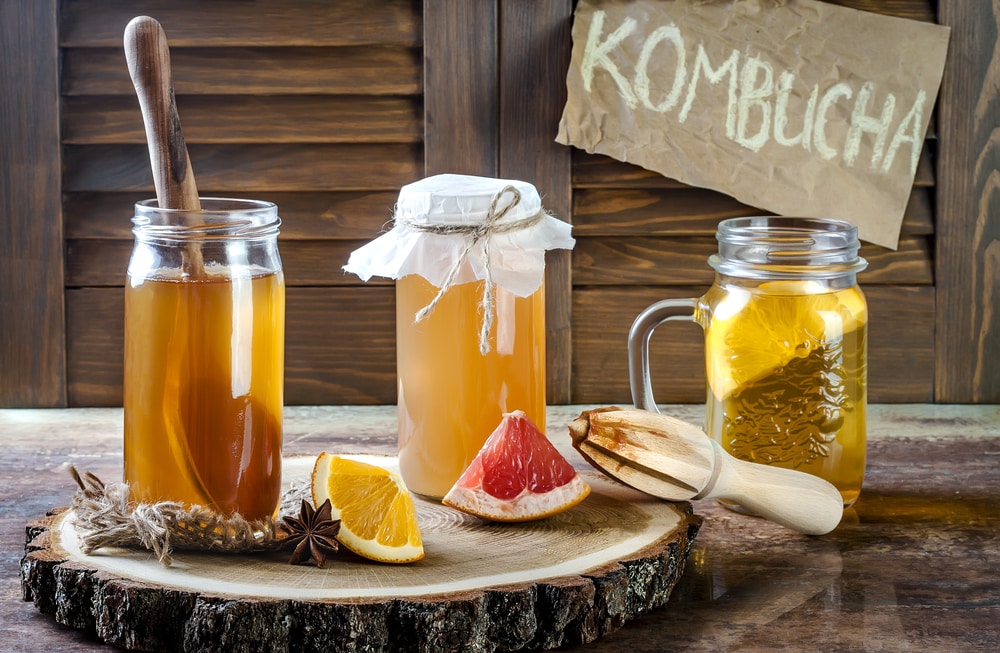
Enjoying a nice after a long day of work and chores is everyone’s ultimate relaxation activity. However, it’s challenging to keep up with the health standards because sodas aren’t really healthy. On the other hand, kombucha is considered a healthier option, given the ingredients. On the contrary, if you don’t understand the differences, we have a kombucha vs. soda comparison outlined in this article!
Helping You Choose Between Kombucha vs. Soda
Kombucha
Kombucha is commonly known as tea fungus and tea mushrooms, and it’s actually a fermented drink. It is made either from green tea or black tea and has a sweeter flavor. In addition, it has light effervescence as well. In addition to this, fruits, juices, and spices are also added to enhance the flavor. When it comes down to the drink, it originated in China and is considered a traditional drink in the country. However, with the onset of the 20th century, the drink became popular in Russia, Germany, and eastern Europe.
These days, it’s available around the globe at a commercial level, but it can be prepared at home as well. To illustrate, it is made by adding sugar to boiling water (the water must not have chlorine), and the tea leaves are steeped in this mixture and removed. Then, the mixture is cooled, and SCOBY is added to turn it into a fermented drink. The addition of culture reduces the pH level, but the fermentation process takes over two weeks (the fermentation is done at room temperature).
It is one of the most delicious fermented drinks made from yeast, sugar, and tea and has a very distinct flavor. In fact, it has a variety of health benefits as it helps get rid of toxins and aids digestion. In the majority of cases, green tea and raw cane sugar are used, but some companies opt for black tea as well. In fact, you must remember that the fermentation process can produce a bit of alcohol, but it’s usually a trace amount (you won’t get drunk).
The fermentation process helps produce amino acids, probiotics, and antioxidants, making it one of the healthiest drinks. When it comes down to texture, kombucha has a fizzy texture. It’s a delicious way of adding probiotics to the diet, which improves nutrient absorption, immunity, and digestive health. When it comes down to the flavor, it has a fragrant and fruity flavor – it’s extremely delicious. All in all, it’s a safe and healthy choice, particularly if you opt for the green tea variant.
Soda
Soda is a common fizzy drink, and it’s actually a carbonated beverage, but it is usually sweetened with artificial sweeteners and/or sugar. The commercially available sodas also have artificial colors and flavors, but there are some diet versions available with fewer calories as compared to regular soda drinks. This is because the majority of diet sodas are made from artificial sweeteners, such as aspartame.
Overall, soda has high sugar content. Soda has been around since the 18th century, and the first foundation was actually designed and launched in 1806. However, the popularity of sodas increased during the 19th century, while the early 20th century witnessed mass production of sodas. There is a variety of sodas available in the market, including lemon-lime, root beer, and cola.
In addition, you can easily find sugar-free and diet variants, but they still have some sugar available. When compared to the natural ingredients of kombucha, soda only has artificial ingredients, sugar, and chemicals, and there is no nutritional value in soda (the kombucha has vitamins and probiotics). As far as the production is concerned, soda’s fizzy texture is caused by the carbon dioxide gas – it goes through the artificial carbonation process.
Soda is available in various flavors and the carbonation level also depends on the flavor (the orange-flavored sodas tend to be less carbonated as compared to black ones). However, the soda is only available on a commercial scale and cannot be made at home.
The Bottom Line
On a concluding note, both these drinks are widely consumed, but kombucha is preferred by people who like healthier drinks because the ingredients are natural, and it undergoes a natural carbonation process as compared to sodas that are filled with sugar and artificial flavors.